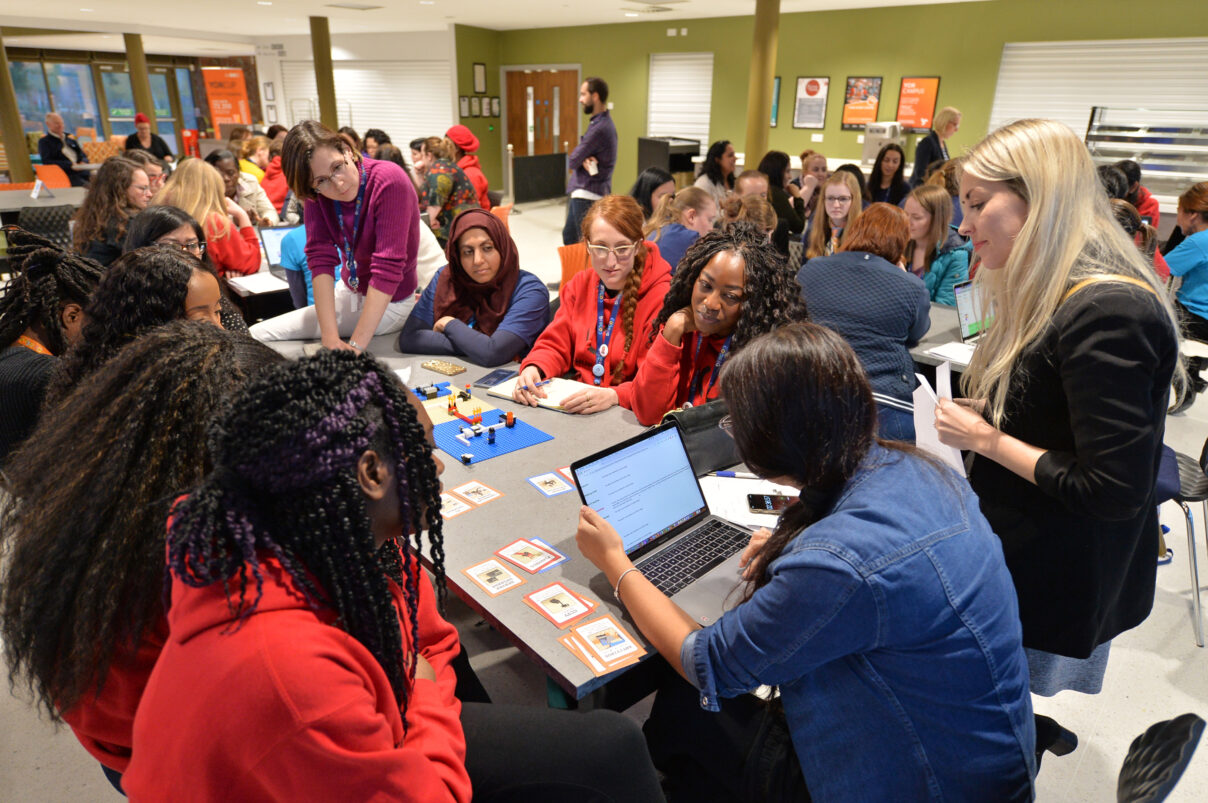Cybersecurity – The 5 Most Talked About Tech Skills and Where to Learn Them for Free
Blog by Dr Paula Beer, Educational Consultant, Academic and TechUP Tutor.
In the previous blog posts I spoke about resources for AI & ML as well as for Data Science and Analytics….now it’s the turn of Cybersecurity.
Skill Three: Cybersecurity

With the increasing number of cyber threats, cybersecurity has become a top priority for organisations. Understanding how to protect systems and data from attacks is essential.
Because cybersecurity is such a fast moving industry, the ability to keep your own knowledge up to date and engage in meaningful projects would make you stand out to prospective employers.
Free Resources to Learn Cybersecurity
1.TryHackMe
What is it?
TryHackMe is an online cybersecurity training platform that helps users learn hacking, penetration testing, and general cybersecurity skills. It has free and paid activities.
What is it like?
TryHackMe is a very enjoyable platform, it uses a lot of gamification and graphics such as streaks and rooms to hack to keep you engaged. There are other platforms, which do something similar like HacktheBox but this is reputed to be good for beginners as well as advanced users.
Are there any quirks?
Maybe it is just me, but I took a little while to understand how to access the room hack challenges using their simulated interface. I think that people who are more used to gaming would be straight in there! Naturally, I reached out for help and found a great review of the tool, which gives some guidance on how to use it most effectively too: TryHackMeReview 2025.
Also, it may have a pop up which says that you’ve only paid for something or other but that won’t stop you engaging with the room hacks.
2. Cybrary
What is it?
Cybrary is a leading online cybersecurity and IT training platform founded in 2015. It offers a comprehensive range of courses, labs, and certification preparation materials designed to equip individuals and organizations with the skills needed to navigate and secure complex IT environments.
What is it like?
Offers free introductory courses on various cybersecurity topics. It has a very genuine feel, the creators care whether you learn the concepts or not; they present ways to help you remember the concepts. There is a paid for level too, but you can start with the free introductory resources.
Are there any quirks?
Don’t be put off by a lock icon which says “enrol to read” ; enrolling just means hitting a button, not paying for anything.
3. Cisco Networking Academy
What is it?
Cisco Systems is a multinational technology company that develops, manufactures, and sells networking hardware, software, and related services. Its Networking Academy provides free and paid for training for networking related skills, of which there are many.
What is it like?
The introduction to cybersecurity is genuinely free with interactive exercises. Learners may not find the way the material is presented to be as engaging as some other providers but Cisco is a globally recognised company specialising in networking and telecommunications, so it has considerable prestige. There are numerous paid for certifications which follow on from the introduction level courses. The widely recognised CCNA (Cisco Certified Network Associate) is accessible from the site, which you can self-study for but the exam (understandably) is chargeable.
Are there any quirks?
Quirkless!

Conclusion
Having obsessed quite a bit recently about Cybersecurity, reading articles, listening to podcasts etc. I can say with confidence that there are lots of different routes into Cybersecurity. However, the most important thing is to be constantly learning and being intrigued by Cybersecurity.
My impression is that the Cybersecurity community are a very supportive bunch who like to share their enthusiasm for the craft and recognise that skills and knowledge are more important than qualifications to do the job but qualifications may be needed to get your foot in the door.
Cybersecurity has a long tradition of competitions and gamified learning, so competitions, capture the flag challenges and conferences might be another way of networking in the community to further your chances of success. If you are going to go down the cybersecurity route learn first how to protect your own set-up using Virtual Machines (VMs) and Virtual Private Networks (VPNs) before you engage in hacking games online.
Sneak Peek: Next up is Software Development.
